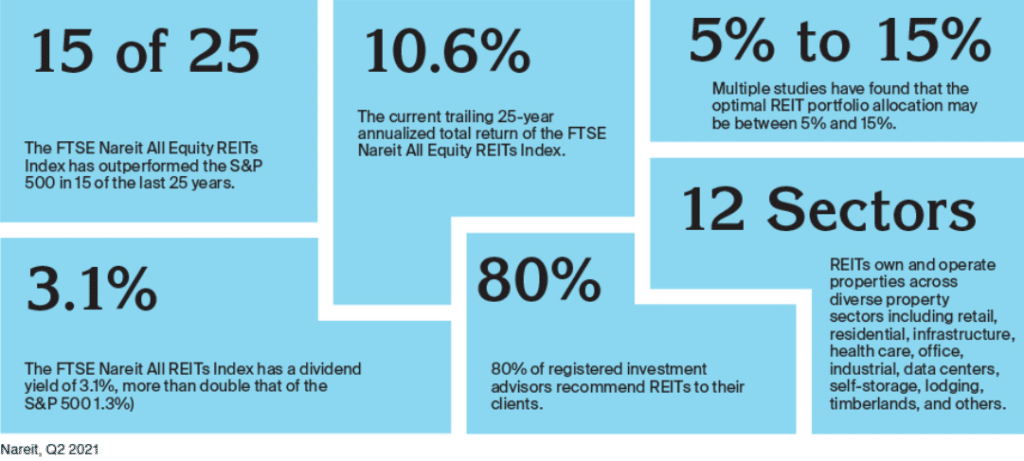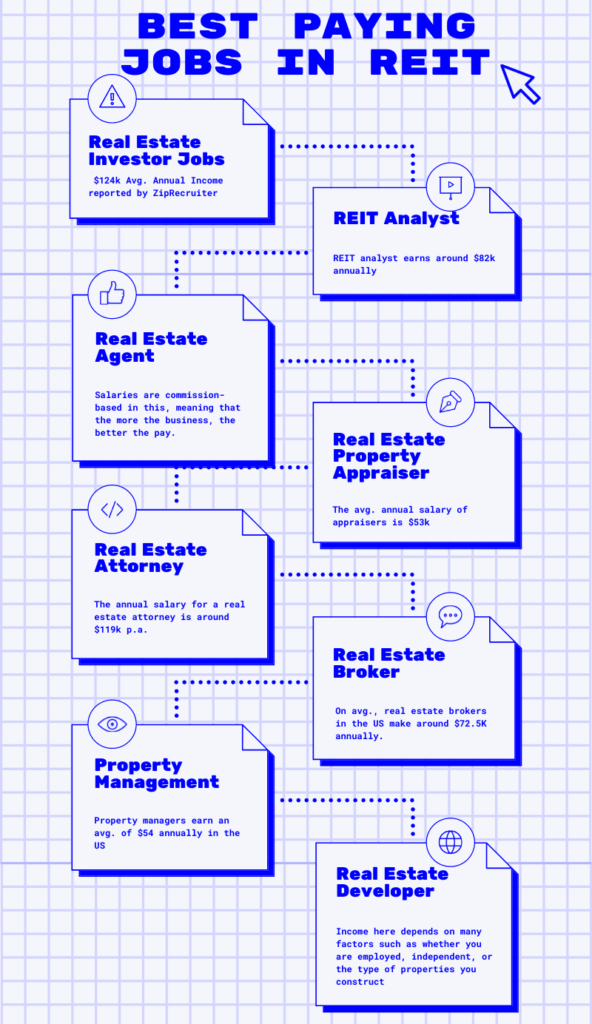Before the article begins, here’s a shoutout to you, the reader. The fact that you are reading up on career choices places or precisely, asking google “is real estate investment trusts a good career path?” – you are far ahead in life than many. Life is not supposed to be defined by career choices. But this is an inevitable choice nonetheless. So, might as well make an informed choice.

Humanity is gifted with a need to always build on what was previously built. This is what we call progress. We began with stones and sticks. We tamed the environment and shaped it to our needs. We found ways to live together and called it religion along with ever-evolving ideologies. We learned to trade in barter and then replaced that with a fiction called money. We came up with monarchy and then evolved into a democracy. We keep evolving. So does everything around us. Who would have thought that you can trade the gold with a bunch of paper a thousand years ago? Just like that, you can be a real estate success without ever owning a property.
A Real estate investment trust is another example of how we keep on evolving and how it evolves everything around us. Now you want to build a career in real estate without the hassle and responsibility of a physical property.
Table of Contents
Before you ask “is real estate investment trusts a good career path?”, do you even know what it is?
Real Estate Investment Trusts (REITs) are companies that own, handle or operate real estate properties. REITs is a mutual fund that holds income-generating properties. These properties can be anything from hospitals to malls or schools and colleges.
People can purchase shares or real estate stocks from publicly-traded REITs. The REITs then use that money to finance or acquire assets and securities. REITs then generate revenue either by rental income or interest payment. The revenue gets distributed among the many shareholders and investors. This becomes a source of passive income for investors where they don’t have to get involved physically.

REITs are already a vital part of the economy in countries like the United States of America. According to reports, the market size by revenue in 2021, of the REITs industry, stands at $214.4bn. REITs are certainly the future of the real estate business. The major advantage of REITs is that people can benefit from real estate with minimal knowledge about the subject.
Types of real estate investment trusts
When one buys real estate stocks or invests in REITs, they invest in a liquid asset. Contrary to buying a property and being stuck with it. One can buy stocks of multiple properties and resell them in the real estate market. Once can diversify the risks by doing so. Diversifying risks is investment 101. There are a few types of REITs one can invest in. Here we are going to talk about two main types of REITs: Equity and Debt.
Equity real estate investment trust
This is one of the traditional approaches to investment. One can invest in a company that manages or owns properties. For example, a shopping mall. The investors or stakeholders get regular dividends from the rental income or profit made after selling a property. Here, one can take the role of a developer without ever taking the responsibility of buying or managing a property. REITs do that on the investor’s behalf.
Mortgage or debt REITs
Here one invests in REITs that finance the property using the pooled funds. Investors buy real estate stocks for REITs, and those pooled funds are used to provide loans. Naturally, the dividends are distributed from the interest earned on those loans. The operations here are the opposite of equity REITs.
This one is a great option for those looking to add another layer to their diversification of risks. There is a mix of equity and debt REITs. One gets regular dividends from the interest on loans, rental income, and capital gains.
Pros of REITs
- Anyone can invest without having extensive knowledge of how real estate works.
- It requires less capital.
- High liquidity – One can easily sell off shares or stocks. Whereas, it becomes excruciatingly hard to sell off a physical property.
- Opportunities to add many layers to the diversification of risks.
- The properties are fully vetted. REITs do not invest in bad properties. In short, they vet the properties on your behalf.
- It is transparent and with 90% profit being distributed among the shareholders.
- Tax advantages over owning a property.
Cons of REITs
- The stocks are dependent on the economy. So, there is always a stock market risk exposure. However, real estate value fluctuates even when one owns a property.
- Trust issues – you have to rely on someone else to manage properties.
- One has to pay management fees since somebody else is handling the properties for them
Real estate investment trusts career choices and statistics
Now that you know REITs, you are one step closer to making an informed decision. “Is real estate investment trusts a good career path?” is as legitimate a question as a good REITs. As said previously, humans always look for progress. REITs are an inevitable future and a career opportunity. Yes, it comes with its own risks, but all changes do. If humans were afraid of changes, we would never progress to the age of the internet and nuclear energy.
Yes, real estate investment trusts is a good career path as the current trends show that this sector has great opportunities. In 2019, Over 274,000 people were employed full-time by a REIT. By a short survey it was found out that on LinkedIn, around 1000 jobs are posted on daily basis. And it will only become better in the future.
The government pays more respect to real estate development when it comes to building an economy. And the investors consider REITs as a safe and reliable source of income. This trust brings in a lot of investors’ money. So naturally, there are too many job opportunities in this sector. And this overall makes real estate investment trusts a good career choice. Another case in point is the amount of money people are making who are involved in REIT. Just look at the numbers below.
The types of jobs in this sector are property managers, development executives, acquisitions managers, operation managers, data analytics, and many more. Best paying jobs in REIT are Real Estate Investor, REIT Analyst, Real Estate Agent, Real Estate Property Appraiser, etc. The highest-paid makes an average of $124k annually.

Frequently Asked Questions:
Let’s look at a few questions for certain types of jobs in this sector:
Is real estate acquisitions a good career path?
A REITs firm has to vet each and every property before investing in it. Investors and the company can lose a lot of money if they invest in a bad property. The Acquisitions team looks for new investment opportunities. They map the possibility of funds and investment opportunities. If you want a career where you come up with better investment strategies, then this is the pathway for you.
Is real estate development a good career?
These are the eyes and ears on the ground for any firm. The development team is the core of any REITs firm. Developers work with the contractors on-field and finance the development of a property. You can say that without developers, there wouldn’t be any property. If you are someone who can’t sit in one place and loves working in the field, then this is a great pathway for you.
Is property management in REITs a good career?
Property managers are responsible operations of properties under their onus. They are in charge of how property functions and generates revenue. You can make the most money in this. If you are somebody who becomes a default logician in all family functions, then this might prove to be a great pathway for you.
Is investor relations in REITs a good career?
If one invests money in REITs, then they will have a lot of questions. Investor relations is responsible for maintaining good relations with investors. Investors are naturally cynical, with a lot of money on the line. REITs firms can lose their trust based on a single bad experience. This is a great pathway if you like dealing with people, answering their questions, and calming them.
Final words
So, is real estate investment trusts a good career path? Short answer, YES!
There are risks associated with every career pathway. In the end, what matters is whether you are honest with yourself or not? Before choosing any career, reflect. Reflect on what skills you have and what skills you want to build? What are the resources available for you to upskill yourself? And most importantly, would you enjoy acquiring said skills?
There are many pathways to choose from when it comes to picking the right choice of REITs career. The right choice is where you align, not where you earn the most money. For example, one might focus on the best paying jobs in real estate investment trusts and go for property management. But they might be the kind of people who can’t sit at one place the whole day.
In the end, the decision is yours. Research more. Read case studies. Connect with old and new people in the industry. Reflect on your finding and make an informed decision.

